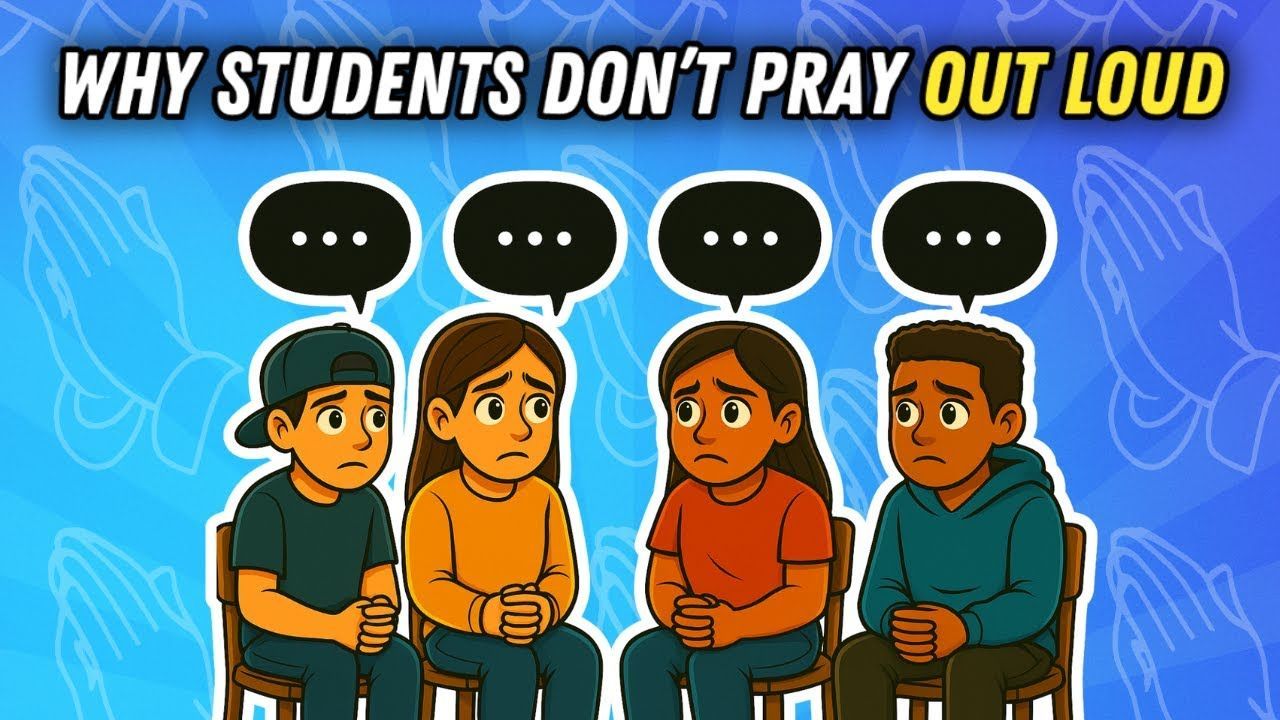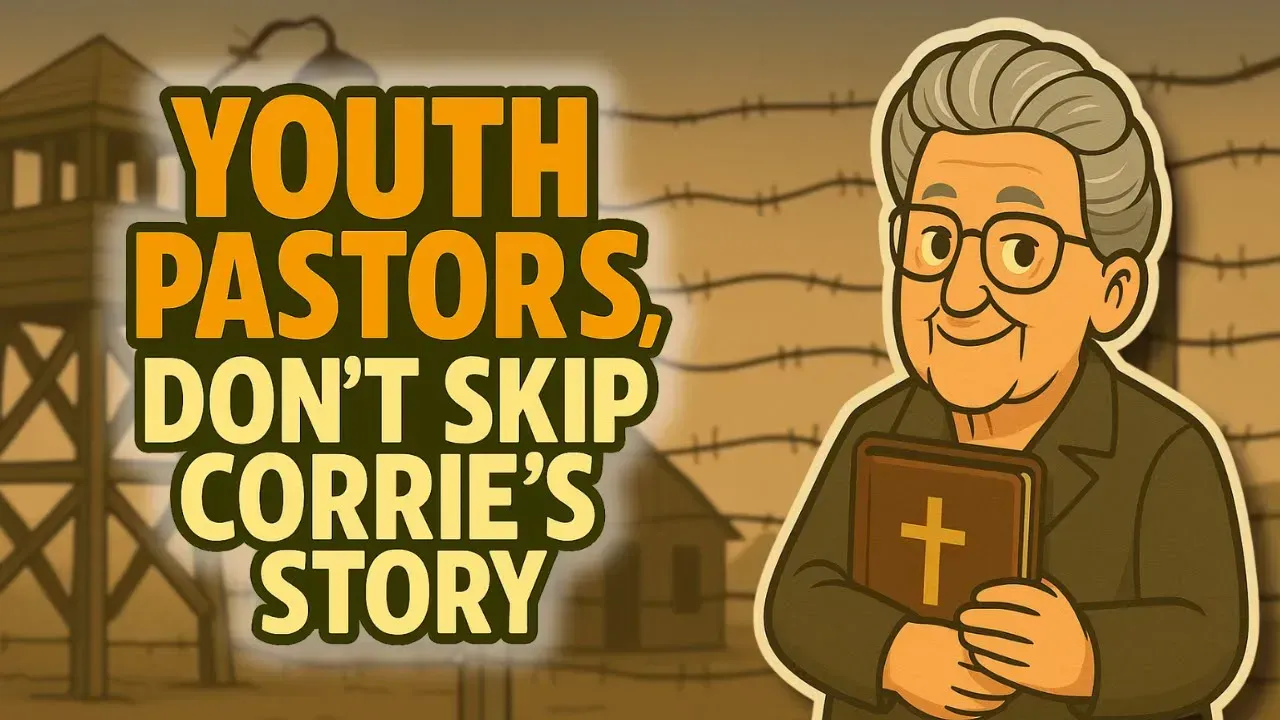5 Subtle Mistakes That Can Destroy Your Ministry Fast!
Don't Let Your Youth Ministry Fade: 5 Subtle Ways You Might Be Killing It
Check out the podcast here!
Every youth pastor dreams of a thriving, growing ministry. But what if the very things we're doing, or not doing, are subtly undermining that vision? Instead of focusing on growth hacks, let's flip the script and explore five insidious ways youth ministries can slowly fade into ineffectiveness. These aren't about major moral failures, but the slow, often unnoticed, drifts that can ultimately destroy the impact we long to have.
This exploration stems from a desire to avoid ineffectiveness and not settle for the status quo. The Lord is in control, but we are called to be faithful stewards of the resources, time, and students He entrusts to us. So, let's dive into what to guard against.
1. Prioritizing Entertainment Over Discipleship
We all agree discipleship is key, and no one sets out to be "all entertainment, no substance." Yet, it's a subtle trap. How do you know if you're leaning too heavily on entertainment?
- Game-centric Focus: Do you spend more time and energy planning the game than the message or the discussion? If "youth ministry games" is your top search query, it might be a warning sign. While fun and games aren't bad (even a ping pong table can have its place!), they shouldn't be the main draw.
- Incentive-Driven Attendance: Are you constantly trying to "keep things fresh" with theme nights, giveaways, or entertainment solely to get kids in the door? If you feel the need to incentivize attendance with something other than the Gospel and genuine community, you might be prioritizing entertainment.
- Shying Away from Truth: In an effort to be "appealing," do you downplay the Bible or the core truths of the Gospel? One speaker recalled visiting a ministry where they were asked to hide their Bible because it "might not be appealing" or "offend anybody." While the evening was fun and games-filled, it lacked spiritual depth.
The goal isn't to eliminate fun, but to ensure it doesn't overshadow the primary purpose of making disciples.
2. Building It Around Your Personality
It's easy for a youth ministry to become "The Keith Show" (or "The Ryne Show"), especially when it feels easier to do things yourself. But this creates a dangerous dependency.
- The "One-Man Show": Do you find yourself doing almost everything in the program? While not always born out of ego—sometimes it's procrastination or the difficulty of involving others—it prevents shared ownership and leadership development.
- Lack of Delegation: Ryne shared a personal story where his wife, Kathleen, pointed out his failure to delegate the simple act of giving a new student a Bible. He was so used to doing it himself that he missed an opportunity for her, as a small group leader, to connect with the student. Delegating not only lightens your load but also empowers others and gives them opportunities for ministry.
- What Happens if You Leave? If the ministry revolves entirely around you, what happens when you're gone? Whether you burn out, move on, or something unexpected occurs, a personality-driven ministry often collapses in the leader's absence, leading to violent swings between youth pastors that leave students adrift. Always be training someone to take your place.
3. Keeping Everything Programmatic and Neglecting Relationships
A smooth program and a great message are good, but if relationships aren't at the core, the ministry will lack true connection and impact.
- Service Over Small Groups: If small groups aren't the heartbeat of your ministry, it's likely program-focused rather than relationship-focused. As a ministry grows larger, it must grow smaller through intentional relationship building.
- Attendees, Not Individuals: When everything is programmatic, students can feel like numbers rather than known individuals. Does anyone know their name, what they're going through, or even notice if they're absent?
- Beyond Programmed Time: It's crucial to connect with students outside of scheduled youth ministry events. Showing up at their baseball games, school events, or even seeing them at the grocery store (like the surprising math teacher!) can have a huge impact. Ryne mentioned how being present at students' sports games, even if it means a busy evening, is a win for building relationships with students and their parents. These out-of-context interactions show students you care about them as real people.
As the saying goes, "Jesus built a movement through relationships, not weekly events.
4. Ignoring Parents Completely
A common pitfall is developing an "us versus them" mentality with parents, often stemming from a few challenging interactions. However, partnering with parents is crucial.
- Taking Questions Personally: Do you get defensive when parents ask clarifying questions or express concerns? A simple text asking if youth group is meeting can be misinterpreted as a personal attack if we're not careful.
- The Shift to Partnership: Keith shared that his perspective on partnering with parents significantly shifted when he had his own children. But even if you don't have kids, you can still effectively minister to families by speaking from the authority of God's Word. Ryne uses the phrase, "I don't have teenagers yet, but I work with [X number] of teens weekly, and here's what I see," leveraging his cumulative experience.
- A Missed Mission Field: For every student, there are likely parents God might use you to reach. Ignoring parents means missing a huge mission field. Inviting parents into discipleship opportunities or simply listening to them and praying for them can be incredibly powerful.
- Reinforcing at Home: Ask parents what they're trying to teach their students at home so you can reinforce it. It's incredibly validating for parents (and effective for students) when they hear the same truths from multiple trusted voices.
5. Avoiding Teaching the Full Gospel
Perhaps the most critical error is shying away from teaching the full Gospel, often out of a desire to be "comfortable" or "not offensive."
- Vagueness and Lack of Clarity: It's not always about believing something contradictory; sometimes, it's an inability to explain the Gospel clearly and compellingly. Keith recounted a story where a guest speaker at a large outreach event was so unclear about the Gospel and the invitation that students were left confused. One student leader, Tyler, was near tears, saying, "You know how hard it was to get my friend here? He didn't share the gospel."
- Grace without Repentance, Love without Lordship: We must present both aspects. Students, even those who have grown up in the church, need to hear the full Gospel consistently.
- Modeling for Students: Even if you believe all your current students are Christians, teaching the Gospel clearly and regularly models for them how to share their faith. Statistics show that a high percentage (around 87%) of teenagers who share the Gospel saw an adult do it first.
- You Never Know: You never know when it will "click" for someone. A student who has been attending for a while might suddenly understand and respond to the Gospel message for the first time, as happened recently in one of their ministries.
One of the biggest compliments received in youth ministry came from a first-time visitor who simply said, "Thank you." When asked why, he implied that the Gospel had been made clear, perhaps for the first time.
Avoiding these five subtle destroyers can help ensure your youth ministry doesn't just survive, but truly thrives, making a lasting impact for the Kingdom.











